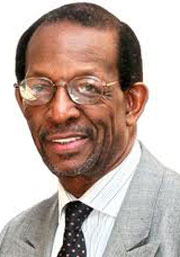
Mandela and the unfinished freedom struggle
By Ron Daniels NNPA Guest Columnist
As chairman of Freedom, Inc. in Youngstown, Ohio, a community-based, Pan Africanist organization, I was privileged to be among a small group of activists/organizers who launched the mobilization to hold the first African Liberation Day (ALD) in the U.S. in 1972. The focus of ALD was to mobilize political and material support for the liberation movements fighting to achieve independence in the last remaining European colonial regimes in Africa – Cape Verde and Guinea-Bissau, Angola, Southwest Africa (Namibia), Rhodesia/Southern Rhodesia (Zimbabwe), Mozambique and of course South Africa.
Of all of these brutal regimes, the vicious apartheid regime in South Africa seemed to be the most impregnable. An entrenched and determined white minority ruthlessly controlled more than 85 percent of the land and resources and compelled the vast Black majority to live as sub-humans in wretched conditions under a system of rigid separation of the races.
Time and time again, the White supremacist regime demonstrated its willingness to use the state controlled mechanisms of force/violence to crush protests, rallies and demonstrations as evidenced by the Sharpsville massacre in 1960, merciless suppression of the Soweto uprising in 1976 and countless overt efforts by the Black majority and its allies to shatter the shackles of apartheid.
But, the thirst for freedom and will to resist oppression could not be extinguished in large measure because of the man who came to encapsulate and symbolize the aspirations of the people, Madiba, Nelson Mandela.
Mandela was the “tallest tree” in a forest that included many movements and stellar leaders, e.g., the Pan African Congress, Black Consciousness Movement, Mass Democratic Movement, Steve Biko, Bishop Desmond Tutu, Allan Boesak, Cyril Ramaphosa, Albertina and Walter Sisulu and Oliver Tambo to mention a few. This is an important note because there is a tendency to cast successful movements as the result of the acts of a solitary heroic figure.
Mandela emerged as the face of struggle in South Africa and abroad because of his vision, courage and commitment as a leader and his willingness, if necessary to die for the cause – an expression of courage and commitment which he unapologetically stated at his trial before being sentenced to prison. His willingness to face death and suffer a long imprisonment while never surrendering or giving up on the dream of a multiracial, democratic South Africa is the stuff that made him the symbol and face of the movement, an icon and legend even before the apartheid regime was forced to release him.
“Free Mandela” became the battle cry of the freedom struggle in South Africa and the world. This was certainly the case in the U.S., most notably among the forces within the Black liberation movement.
An incredible movement was exploding across the country. Over the objection of the U.S. government students organized campaigns to demand that colleges/universities divest or withdraw investments from South Africa. City councils around the nation followed suit. There was an aggressive effort to use economic sanctions/boycotts to force U.S. corporations doing business in South Africa to divest as well. South African lobster tails, Budweiser beer and Coca Cola Company come to mind as some of the targets. Indeed “Coke Sweetens Apartheid” was one of the more popular slogans of the time. The Congressional Black Caucus mounted a vigorous campaign to impose economic sanctions on South Africa to break the back of apartheid. With the mass movement intensifying, Congress overrode the veto of President Ronald Reagan to impose sanctions and finally place the U.S. government on the right side of the heroic freedom struggle in South Africa.
In the face of fierce and unrelenting resistance inside the country and internationally, after 27 years, February 11, 1990, the illicit regime in South Africa was compelled to free Madiba, Nelson Mandela, the courageous leader and symbol of the movement for freedom, democracy and economic elevation of the masses of South Africans
At last the slogan/chant “Free Mandela” had been realized and with it the hopes and dreams of a long suffering people seemed closer to fruition. Now Mandela and the ANC were faced with the daunting task of transforming a resistance movement into a governing party and to navigate a risky path of negotiating an agreement with the National Party that represented the White minority.
Finally, Mandela persuaded the ANC to abandon the goal of nationalizing the major means of production, thereby assuring that the same individuals, families and companies that dominated the economy during the era of apartheid would be safely in control in the new South Africa. This did not mean that ANC abandoned its pledge to improve the quality of life for the Black majority, but the negotiated settlement meant that these promises would largely have to be met through policies enacted by the government. to the means of production and control of the economy.
Now that our beloved Madiba, this giant of a man who inspired generations to engage the struggle for a free, non-racial, democratic South Africa has joined the ancestors, it marks the passing of an era.
